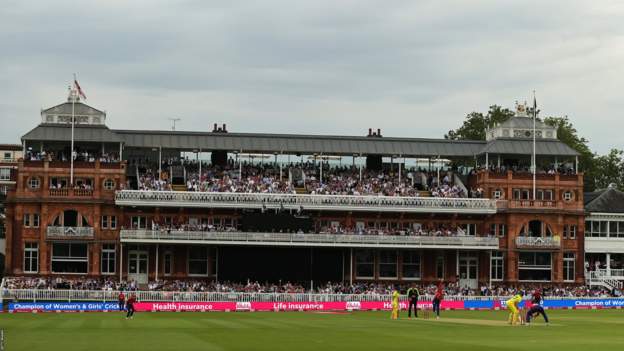Thanks, feel a bit more confident now but like all City fans absolutely sick to death of it.I think you misunderstand what happened. It was all set out in the CAS award: the club signed a sponsorship at fair value with Etisalat, services were provided in full but for a two year period payments from Etisalat were held up by finalisation of a new contract. During that period, services were provided under a legally binding heads of agreement, invoices were properly issued and were recorded as income in the accounts.
The only tricky thing is that, iirc, the new contract stipulated that Etisalat should pay monies to ADUG and ADUG should transfer the money to the club (unclear as to why, probably UAE fiscal reasons, but a contract is a contract). For these two years, ADUG paid the money to the club in advance of the receipt of the money from Etisalat. These are the payments the idiot Morgan is talking about. At the end of the two years, once the new contract was finalised, ADUG had received the money from Etisalat.
To me, this is a big nothing burger. The sponsorship revenue was genuine, at fair value under legally binding contracts, and properly recorded in the accounts. There is nothing in this that affects the true and fair view given by the accounts. Quite the opposite. Taking the money out of revenue and putting it into equity would NOT give a true and fair view.
You are using an out of date browser. It may not display this or other websites correctly.
You should upgrade or use an alternative browser.
You should upgrade or use an alternative browser.
PL charge City for alleged breaches of financial rules
- Thread starter ayrshire_blue
- Start date
LeonardoDaVnci
Well-Known Member
Actually the PL have made a huge mistake here, if you add up all the players in the following squads- Mens, EDS, U18, Womens, then there should 92 charges. However if you also include players on loan then the figure should be 115, fancy that !. Maybe we should email tricky dicky Masters and let him know....Now, is that one charge or 11 individual charges like the league has done over the financial stuff? :/
cheekybids
Well-Known Member
- Joined
- 18 Sep 2009
- Messages
- 12,930
United have been at it for years. They pay virtually no tax in the UK and invest virtually nothing in the Greater Manchester community. They are a despicable organisation but apparently our business model is unsuitable.

Now Man Utd stand accused over low level of corporation tax
Club says figures for last six years do not take any deferred payment of corporation tax into accountwww.theguardian.com
“Low level” Is that like “minor” when explaining their misdemeanours.
Reading that article, surely the Etihad charge is just going to be a re run of the CAS one and we have to hope the IC find the same way as CAS?…All covered here in this article by David Conn. City were up front about ADUG paying the money and it being reimbursed later. Not exactly the behaviour of having something to hide. Ultimately it didn't get considered by CAS due to the time-barring though so I guess we don't know for sure which way that would've gone. However, if there was any wrongdoing on the part of the club surely they would've come up with an easier get out than being so up front about it!

Mansour's payments and a U-turn by Uefa: key Manchester City findings | David Conn
Court of arbitration for sport judgment also finds no Uefa bias and shows why an alleged FFP breach was unsubstantiatedwww.theguardian.com
As for Etislat, I guess IF not time barred we’ll provide key witnesses like we did for the Etihad one at CAS.
Again, we’ll then have to hope the IC side with us.
My concern is that I feel like there’s no guarantee you win no matter what the evidence, it’s possible two out of the three don’t agree with us…
burning blue soul
Well-Known Member
Have pigmol been charged for not controlling their referee?They have charged us for not controlling our players
Edited for accuracy - 20?Now, is that one charge or 11 individual charges like the league has done over the financial stuff? :/
Mid Wales blue
Well-Known Member
- Joined
- 30 Jan 2017
- Messages
- 4,892
For what it’s worth I don’t think we’re guilty, we’re the best ran club in the world. But for argument sake, if we were guilty where would that leave us? Obviously no one knows the potential punishment by the premier league if we were guilty, but surely the board and the owners would have to step down or are they themselves facing jail time? I have absolutely no idea so could someone with a bit more knowledge on the situation enlighten me?
bluemonkey71
Well-Known Member
- Joined
- 26 Jan 2009
- Messages
- 7,556
Reading that article, surely the Etihad charge is just going to be a re run of the CAS one and we have to hope the IC find the same way as CAS?…
As for Etislat, I guess IF not time barred we’ll provide key witnesses like we did for the Etihad one at CAS.
Again, we’ll then have to hope the IC side with us.
My concern is that I feel like there’s no guarantee you win no matter what the evidence, it’s possible two out of the three don’t agree with us…
So after dragging in all on sundry at CAS and cross examining senior management and CEO’s, auditors,accountants and financial experts and going through bank accounts, the IC will find a different result to what CAS did and say they all lied at CAS? Not a fucking chance. Go down that route and the sponsors would wade in against the PL
Centurions
Well-Known Member
We're not guilty so I can't see the point of the rest of your post. Do you really think SM would face jail time? Don't be a wally.For what it’s worth I don’t think we’re guilty, we’re the best ran club in the world. But for argument sake, if we were guilty where would that leave us? Obviously no one knows the potential punishment by the premier league if we were guilty, but surely the board and the owners would have to step down or are they themselves facing jail time? I have absolutely no idea so could someone with a bit more knowledge on the situation enlighten me?
For what it’s worth I don’t think we’re guilty, we’re the best ran club in the world. But for argument sake, if we were guilty where would that leave us? Obviously no one knows the potential punishment by the premier league if we were guilty, but surely the board and the owners would have to step down or are they themselves facing jail time? I have absolutely no idea so could someone with a bit more knowledge on the situation enlighten me?
Do you really think the 2nd highest ranking member of the Royal Family of Abu Dhabi would be sentenced to prison in the UK? Not a chance.
Yeah I can see him sharing a cell in Strangeways with some drug dealer from SalfordDo you really think the 2nd highest ranking member of the Royal Family of Abu Dhabi would be sentenced to prison in the UK? Not a chance.
dadnlad
Well-Known Member
i think you'll find answer somewhere in the 3447 pages so far writtenFor what it’s worth I don’t think we’re guilty, we’re the best ran club in the world. But for argument sake, if we were guilty where would that leave us? Obviously no one knows the potential punishment by the premier league if we were guilty, but surely the board and the owners would have to step down or are they themselves facing jail time? I have absolutely no idea so could someone with a bit more knowledge on the situation enlighten me?
Mazzarelli's Swiss Cheese
Well-Known Member
- Joined
- 12 Apr 2019
- Messages
- 20,391
- Team supported
- FC Zurich (and city of course)
Ffs, where to start with that.For what it’s worth I don’t think we’re guilty, we’re the best ran club in the world. But for argument sake, if we were guilty where would that leave us? Obviously no one knows the potential punishment by the premier league if we were guilty, but surely the board and the owners would have to step down or are they themselves facing jail time? I have absolutely no idea so could someone with a bit more knowledge on the situation enlighten me?
Surely if we are found guilty the board would have to step down?We're not guilty so I can't see the point of the rest of your post. Do you really think SM would face jail time? Don't be a wally.
This might put the independent football regulator back in the news.

 www.bbc.co.uk
www.bbc.co.uk

ECB introduces independent cricket regulator
The England and Wales Cricket Board (ECB) has introduced an independent regulator in response to damning independent report into the game.
Bald fraud
Well-Known Member
- Joined
- 12 Jun 2011
- Messages
- 5,570
After yesterday’s refereeing performance. I’ve come to the conclusion we’re getting it in the ass!
Surely if we are found guilty the board would have to step down?
Realistically they would probably have to, yes.
I genuinely believe we’re not guilty, I just find it hard to believe that after the trial is done and they find us not guilty, they will go “not guilty carry on as usual”. Especially after the media bullshit.Realistically they would probably have to, yes.
